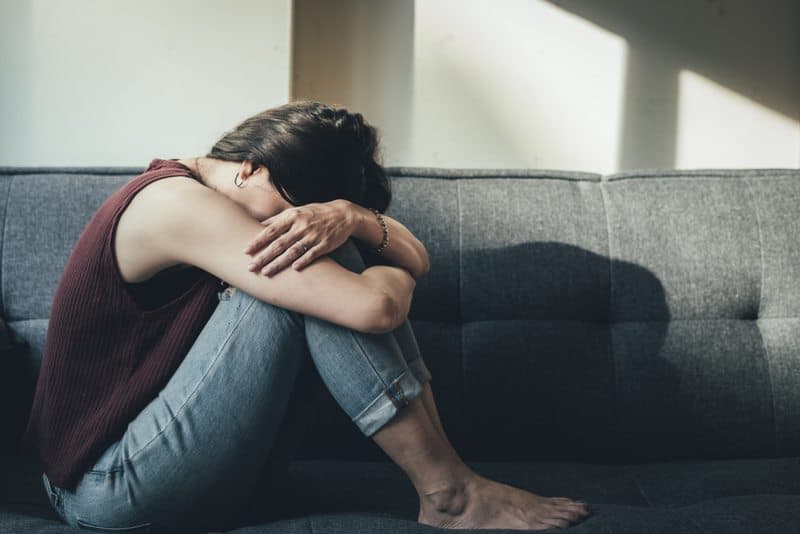Amaha / / / 5 Therapist Recommended Tips To Deal With Social Anxiety
ARTICLE | 6 MINS READ
5 Therapist Recommended Tips To Deal With Social Anxiety
Published on
10th Mar 2025

Social anxiety disorder is a mental health condition that leads to fear or anxiety in social situations. A person with social anxiety may feel worried about making a mistake or being ‘judged’ in nearly any social encounter. Routine tasks such as buying groceries, speaking on the phone, or meeting up with friends can feel nerve-wracking for someone with this condition.
Anxiety in social situations is relatively common (think butterflies in your stomach before a big presentation; or some restlessness before a difficult conversation), especially in the aftermath of the Covid-19 pandemic. However, social anxiety disorder is a chronic mental health condition that needs to be diagnosed by a qualified mental health professional.
Social anxiety can cause you to avoid social interactions and can often lead to loneliness or other mental health concerns such as depression. Overcoming social anxiety is possible with the right support, tools, and techniques. If you have found yourself getting increasingly anxious around other people, here are some therapist-recommended tips to help you cope.
1.Practise relaxation techniques
Anxiety almost always results in some sort of physical response. Your body might feel tense, you might find it hard to breathe, your heartbeat might speed up, or you may begin to sweat. These sensations can be uncomfortable and can sometimes make you more anxious or restless.
Practising relaxation techniques can help you calm your body and make such responses easier to manage. Some helpful relaxation strategies include progressive muscle relaxation, or box breathing.
2.Shift your focus
In the popular sitcom, Schitt’s Creek, the character Alexis Rose once tells her brother David that ‘nobody is thinking about you, the way that YOU’RE thinking about you’ (season 3, episode 4 in case you were wondering). These words are an important reminder for people living with social anxiety.
Social anxiety is characterized by an increase in self-focused attention, i.e. being constantly aware of your own thoughts, feelings, reactions, and behavior. For example, at a party, your loved one with social anxiety might be very aware of how they are holding a glass, or how they are reacting to a joke being told. This can lead to a lot of self-consciousness. At times like these, it can be helpful to remind yourself that nobody else is as aware of these things as you are. Shifting your attention from yourself to the things around you can also be beneficial. The 5-4-3-2-1 exercise can be a good place to start.
3. Explore your thoughts
Thoughts and beliefs about social situations play a large role in maintaining social anxiety. Take some time to reflect on your thoughts. Ask yourself questions such as:
What types of situations make me nervous?
What do I think might happen here?
Has something like what I fear happened before?
Have I seen anyone else do the thing I fear? How did I respond to them?
Chances are that as you ponder these questions, you might begin to notice certain themes. For example, you might worry about making a mistake (I might say the wrong thing, I might get laughed at), but the number of times you’ve actually said the wrong thing could be quite low. Similarly, when you’ve witnessed others make a mistake, you might have responded with kindness and empathy (as opposed to how you fear others might respond).
Make a note of these examples. It can be helpful to remind yourself of them at times when the anxiety gets overwhelming.
4. Start small
Dealing with social anxiety is a gradual process. You might want to test the waters before diving in. One way to do this is by experimenting with small social interactions and tracking how they make you feel. To start off, you could challenge yourself to go buy groceries instead of ordering them online. Notice how you feel before and after the event. Once you feel comfortable, you could challenge yourself to smile at the cashier. Gradually, perhaps you can move to greeting them or thanking them for their help.
The goal of these challenges is to slowly get yourself comfortable with social interactions. They can also help increase your self-confidence and overall mood.
5. Ask for help
Asking for help – by definition a social interaction – can feel difficult when struggling with social anxiety. But remember that help is out there in all shapes and sizes. You can start by confiding in a trusted loved one. Simply sharing your fears can feel cathartic. You could also ask them to role-play social situations with you so you can practise how to navigate them.
Professional help from a qualified mental health coach can also be beneficial for social anxiety. A therapist can help you identify your patterns, challenge your thoughts, and practise social skills in a safe and validating safe. If an in-person session seems too daunting, you can consider starting online through video or even voice calls. Social anxiety can be difficult to manage, but regardless of your concern, you deserve to live a happy, fulfilling life and therapy (in any form) can help you on this journey.



